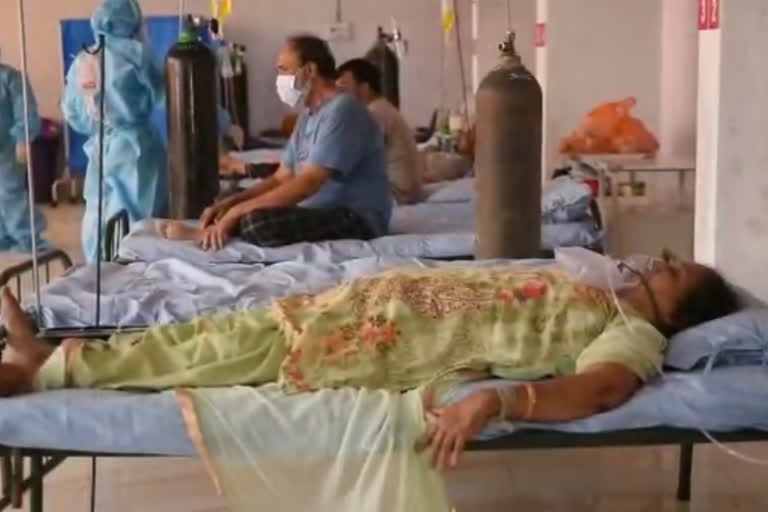Hyderabad: The Lancet Covid-19 Commission India Task Force in its report titled 'Managing India's Second COVID-19 Wave: Urgent steps' has come out with urgent steps to be taken to arrest the rising COVID-19 cases.
It has suggested aggressive ramping up of vaccinations to cover the current priority population aged 45 years and above.
As of April 11, 29.6% of the population in this age group had received one or both doses of the vaccine. A specific focus was laid on the urban poor within this age group, especially in states with the fastest rates of infection.
The government will identify a list of critical co-morbidities that allow adult patients with serious medical conditions (like tuberculosis) access to the COVID-19 vaccines. It has taken immediate steps to expand the supply of all vaccines available for domestic use in India.
Also read: Delhi CM Kejriwal quarantines himself after wife Sunita tests COVID positive
Three elements, however, require urgent attention. India needs to quickly find alternate sources for imported raw materials that are already in short supply, expand fill-finish facilities by bringing in other domestic manufacturers and extend financial support to manufacturers to ramp up production capacities.
Helplines and counsellors need to be in place to address any fears or doubts around the vaccines. A concerted advocacy campaign spearheaded by religious leaders, community elders, and public figures needs to be launched to build a consistent message around the urgency of vaccinations, including a targeted audience-specific behaviour change communication strategy.
The government will update Adverse Event Following Immunization (AEFI) guidelines to report regularly on the frequency of AEFIs related to each vaccine and the severity and nature of AEFIs. The government has to impart appropriate training to healthcare workers to recognize and treat AEFIs from vaccines and to update vaccine-related advisories based on the incidence of AEFIs associated with specific vaccines for the Indian population. The report also recommends that 30-40 minutes of observation time be earmarked for basic health screening (checks for hypertension and diabetes, for example) which can inform links between comorbidities and AEFIs.
Also read: Rahul Gandhi tests Covid positive
Greater vigilance to monitor a surge in infections is required. Further, the report recommended closure of all movie theatres, sports arenas and stadia, and indoor halls where groups of more than 50 can gather in districts with increasing infections and load on health facilities, for April and May.
There needs to be a renewed focus on supplementing state and national efforts with a decentralized approach at the community level to trace, test, and isolate patients. Over the last year, there are several documented successful examples of locally managed tracing, testing and isolating efforts.
The report recommends that the COVID-19 test registration form be immediately amended to include information on whether the individual getting tested has received one or both doses of the vaccine (with details of the type of vaccine).
The report recommended a mandatory seven-day institutional quarantine for all visitors arriving from other countries, with an RT-PCR test conducted on the eighth and the option of completing another week in home isolation if the test is negative. Local communities can be mobilized to ensure the effectiveness of home quarantines. It also suggested that restrictions should not be placed on domestic travel, either within or between cities.
The report also recommended that state governments make a special effort to support migrant labourers, equipping them with masks, options for testing and vaccination where eligible, and by setting up quarantine centres in host districts to manage the spread of the virus from cities to rural areas.
Governments should consider the significant and potentially catastrophic losses in learning, especially for children from low-income families, that have already occurred due to extensive school closures, and to limit such instances as much as possible.
A focused effort to identify the root causes of the surge, including an expansion of genome sequencing of the coronavirus to understand if mutants or variants are responsible for the current surge, and if so, the nature and type of such variants.
The government needs to support INSACOG to achieve its goal of testing 5% of all cases every month on a continuous basis, through financial and regulatory support.




